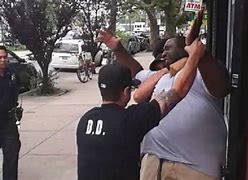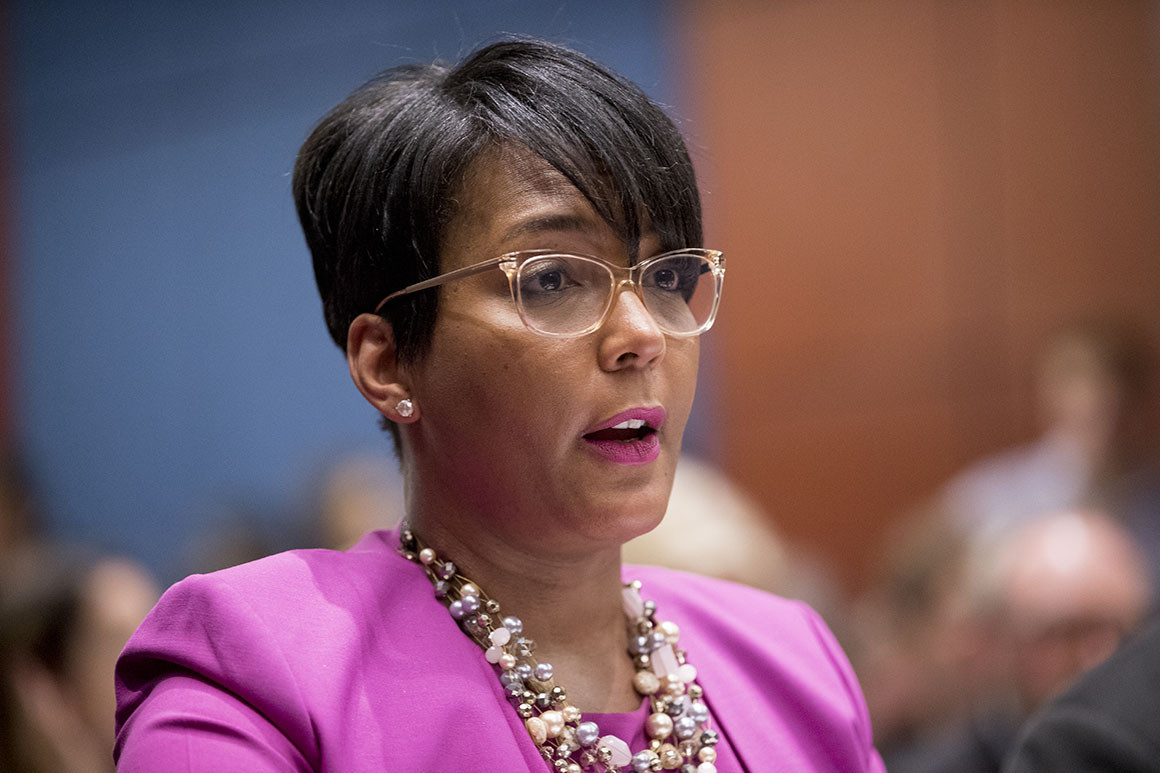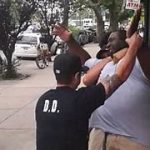
Busting the current police brutality myth, which beget the accompanying #DefundThePolice insanity, hinges upon the answers to these question:
- Is it a societal imperative to arrest those accused of violating the law, so that they might answer allegations made against them?
- Do those who frustrate that imperative commit a separate offense that society allows is judicable “in the field” – rather than in a court of law – and which can be immediately punishable by death?
The answer to those questions help determine the allowable limits of police use of force, informs the definition of “brutality”, and helps to demonstrate the level of funding law enforcement requires to introduce suspects to the criminal justice process.
No matter the angle from which I consider the questions, my conclusion does not vary:
Any society, whose order and security depends on members respecting its body of laws, must consider it imperative that those who resist arrest – to answer for alleged violations of law – be subject to extrajudicial consequences, should they continue to resist, up to and including death.
Consequently, law enforcement agencies must have the authority, the resources, and the public support to subdue criminal suspects and bring to the legal process to determine their guilt or innocence, provided they are willing to be surrender or be subdued. If suspects will do neither, the case for them remaining alive in American society is not strong.
Before I go further, I cite the example of Ms. Parker and Mr. Barrow, a.k.a. Bonnie and Clyde. The Depression Era crime couple were so feared for their skills, and homicidal persistence, in resisting arrest, that law enforcement killed them via ambush in May 1934. They were not that period’s only notorious criminals who were so treated.
The point: it has been long established, even before Bonnie and Clyde died in a car riddled with more than 100 rounds of ammunition, that those who would not go willingly to be examined by and judged under the law could be killed by those who enforce the law.
Yes, I know how that sounds and, before you heat the tar by which you would affix feathers to me, I would have your answer to the following question: what alternative recourse does society have against those who will not submit to the process of an examination of criminal allegations against them?
And, more germane to current political environment, would be the question: is there any cause for which society should remove law enforcement’s authority – the duty, ability, or the means – to deliver any alleged violator to that examination process – alive or dead – in accordance with the alleged violator’s demonstrated preference?
Consider another example: Eric Garner of New York City, who died at age 43 as a direct result of resisting arrest. The 6′ 3″, 350-lb. diabetic with heart problems was fatally arrested on July 17, 2014.
On that day, Garner was suspected of selling untaxed cigarettes, often a Class A misdemeanor in New York. The police did not create this law; society did, via the legislative processes of New York State. Of course, elected officials are seldom present to prevent or address the (unintended) consequences of their edicts; some ignore those consequences altogether. Nevertheless, the police are bound, by oath, to uphold, rather than to debate, the law.
Once confronted, Garner had a societal obligation to submit to arrest, so his guilt could be determined. It was an obligation he tried to avoid before; Garner had been arrested 30 times before by NYPD, including for resisting arrest.
On July 17, 2014, Garner not only denied his obligation, he told officers, “This ends today!” Faced with such defiance by an alleged criminal, what options were available to society and its law enforcers? Should police have:
- Tried arresting Garner at a later time, when he was in a better mood?
- Dropped the matter, gone away, and left Garner be?
Before answering, understand that society has no ability to secure themselves against lawless individuals, absent the ability to physically compel participation in the process to evaluate alleged crimes, at a time of society’s choosing. Therefore, no option, allowing Garner to decide when or if he would respond to the allegations, is acceptable in a society of laws, for then Garner’s prerogatives – apart from the law – would matter more than the rights of society governed by the law.
So again, what were society’s options when faced with Eric Garner’s refusal to be arrested?
For those who say he should have received due process, no one who does not submit to the legal process is due anything from it. By definition, those who resist arrest choose to be outside of the legal process and its protections, and remain in that position until they change their mind – or have it changed – and submit. Garner never changed his mind, never surrendered (The phrase “I can’t breathe!” is not the same as “I surrender!” and, as painful and difficult as it may be, if a person can talk, then they can breathe). Garner was not robbed of due process under the law; he chose not to be under the law where due process resides.
And a third time, what were society’s options when faced with Eric Garner’s refusal to be arrested? They were two:
- Not enforce the law, or
- Bring whatever pressure was needed to overcome Garner’s resistance.
If a living Garner would not yield, then – tragically – he risked death. It was Garner’s choice: either be taken to a precinct and be processed for a misdemeanor offense, or have a physical battle with police that he would not be allowed to win. To this day, his choice seems unreasonable to me, especially in light of the fact he was married with a family.
Let’s switch gears and consider the contrasting and less recent example of Eric Robert Rudolph, the 1996 Centennial Olympic Park, and abortion clinic, bomber who was apprehended in May of 2003. His alleged crimes included murders, more heinous transgressions than Garner’s, and his 7 years on the run showed him no more interested in answering for them than was Garner.
So why is Eric Rudolph serving a life sentence behind bars, while Eric Garner serves an eternal one beneath a headstone? While the thoughtless will cite differences in their race; two other differences are more explanatory:
- Garner confronted the cops who came for him; Roberts evaded capture for 7 years, and
- Garner violently resisted his arrest; Roberts was taken into custody without incident.
The same is true of Dylann Roof, who shot and killed 9 blacks in a South Carolina church on June 17, 2015. After fleeing the state, ostensibly to evade capture, he was arrested without incident the next day in North Carolina.
All three men – Garner, Rudolph, and Roof – were apprehended by police. The two who accepted their societal obligation to submit to arrest, then to be charged and examined, are alive today and answering for murder; the one who refused that same societal obligation is dead, because he would not answer for selling untaxed cigarettes.
Truth is, the moment of arrest creates the possibility of another crime – resisting arrest – separate from violations of which one is already suspected, more important for society to prevent or stop at any cost. Because a society who cannot, when necessary, compel members to join a process of legal examination can enforce no law and, of necessity, becomes a society of men. Therefore, resisting arrest threatens societal order and security in ways no other crime can.
To blunt that threat, it becomes imperative that societies value the ability to compel their members to join their legal processes more than they value the lives of members who refuse to join those processes.
This is why the current lies about police brutality are so dangerous: they degrade confidence in, and the morale of, law enforcement and increase the likelihood that those who commit crimes will avoid a process where they might be evaluated and judged in accordance with law:
- That occurred in Baltimore in 2015 after claims of police brutality and an unwarranted homicide prosecution of six officers created lax policing and a spike in crimes – including homicides – that persists to this day.
- It recurred in Seattle in 2020, with the Seattle Police Department relinquishing a police precinct building and 6 city blocks to protesters – who promptly disrupted neighbors, caused lawsuits and shot 6 people in 9 days, killing 2 black males.
- • It also visited in Atlanta in 2020, after the mayor fired police for combating protest chaos, then fired and charged an officer after a justified fatal shooting; the city was rewarded with a police stand-down and a July 4th in which more people were shot than there were hours in the day.
In all 3 cities, #BlackLivesMatter was active, ensuring that everyone who resisted arrest was seen as a victim of police rather than an enemy of society.
It is also why #DefundThePolice will fail American society. Taking from police departments will only embolden criminals who see police lacking the numbers, resources, and subsequently the will to respond to lawlessness, and cities sending unarmed employees to address “nonviolent” issues. This will ensure more resist arrest opportunities as police officers will now rescue alternate “first responders” who before would not be on scene until after police had controlled the situation.
Lies regarding police brutality, and efforts to remove police funding, are calculated to lessen the likelihood that alleged criminals are arrested and brought to the legal process. They demoralize police and attack bonds of trust and empathy between police departments and their communities, by promoting the unlawful prerogatives of suspects over the lawful rights of society. This leads to communities with heightened criminality made even less safe through reduced police activity and resources.
The (“protesters’”) intended outcome? A more anarchical society – lawless and ungovernable – which cannot continue either as a collection of democracies or, more importantly, as a constitutional republic. This, and nothing short of this, is the “change” that is sought.
American law and order should have the UNQUALIFIED support of the American people. American law enforcement should have the QUALIFIED support of the American people, something they have long enjoyed. While no one believes the police are perfect or that they should have a free hand, they are American in their allegiances and, regarding pursuit of what benefits the American people, far more trustworthy – and worthy of funding – than #BlackLivesMatter.
Recent erosions of that qualified support should be repaired, and further attempts to erode it actively resisted, for it is more vital to the nation than preserving the life of anyone who’d rather not be “inconvenienced” by the process of answering allegations that they violated American law.


